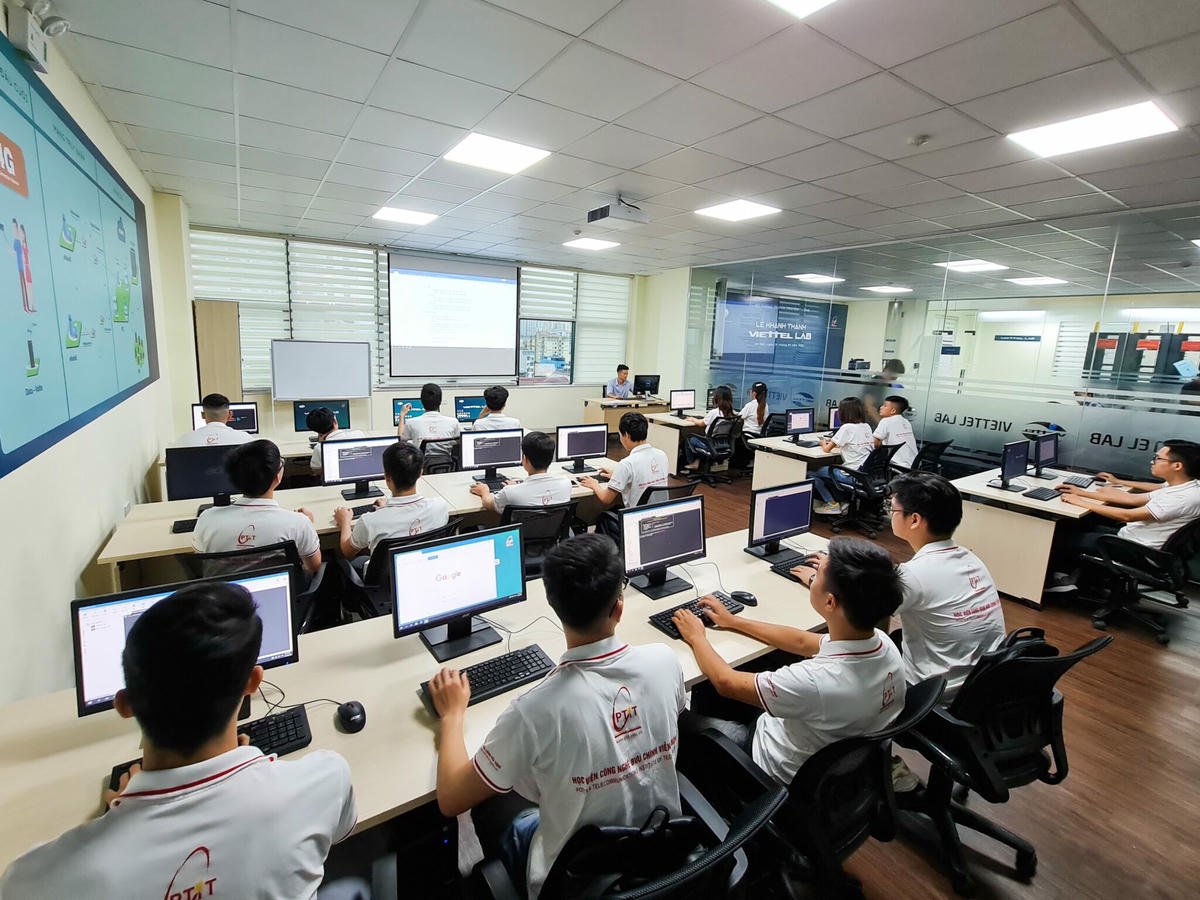
Digital transformation - the driving force for innovation in higher education
Digital transformation is considered one of the important pillars to modernize the university education system. The application of digital technology helps change the way of management, teaching and learning in a more flexible, open and personalized direction. Learning management systems (LMS), virtual classrooms, digital learning repositories, or online assessment platforms are being deployed by many schools, contributing to reducing administrative procedures, increasing transparency and improving the learning experience of students.
The Posts and Telecommunications Institute of Technology (PTIT) is currently developing a diverse digital training product ecosystem. These are long-term digital training products (distance, full-time); digital training products - open MOOC courses; technology services for digital training including digital learning materials production services and online training environment setup services (LMS, AI support). Dr. Doan Hieu - Director of the Posts and Telecommunications Training Center (PTIT) said that PTIT's vision is to pioneer the digital university model, developing a multi-platform training ecosystem. The goal by 2027 is for the Academy to increase the scale of 10,000 distance students, 100% of full-time students to study 30% in the digital environment. By 2030, a "multilingual digital university" will be formed with AI support, serving many specific subjects (overseas Vietnamese, foreigners, remote areas), with a scale of 100,000 learners. By 2035, the Academy will become a model of "digital university" with advanced quality in the region, with a scale of 1,000,000 students.
According to Associate Professor, Dr. Phan Thi Thu Huong - Chairman of the Board of Hanoi Medical University, in recent times, the school has actively implemented multi-modal teaching and electronic learning materials. Hanoi Medical University Hospital promotes electronic medical records, remote medical examination and treatment, and AI applications in diagnosis, contributing to improving the quality of treatment and patient experience. Ms. Huong emphasized that digital transformation is the driving force for innovation in university education and the health sector, opening up opportunities to build a modern, humane and sustainable education and health care system.
Digital University - a model of sustainable development
According to the Project "Raising awareness, popularizing skills and developing national digital transformation human resources by 2025, with a vision to 2030", the goal by 2030 is that 100% of "digital universities" must complete digital organization models, digital governance, digital operations, standardize digital data, open digital science warehouses and be invested in synchronous infrastructure, technology platforms, learning and practice equipment, ready to enroll and train digital transformation human resources.
From the experience of deploying the digital university platform at PTIT, Prof. Dr. Ngo Quoc Dung - Director of the Institute of Posts and Telecommunications Technology (PTIT) assessed that to implement digital transformation, there must be determination and close direction from the leadership to create traction for the entire system. Regarding finance, it is necessary to clearly identify the funding source. If it is implemented as a long-term project, it must be done carefully from the request stage. If it is implemented regularly, it can be divided into phases or flexibly hired services. Human resources are also a decisive factor. In case there is no internal team, it is advisable to hire reputable experts to accompany. If there is already initial human resources, it is advisable to continue training and learning from successful models.
Mr. Dung also emphasized that the system of regulations and internal processes must be reviewed or rebuilt to suit the digital environment, and should not have too many specific features. It is necessary to evaluate the existing information technology infrastructure to choose a reasonable investment or outsourcing option.
Professor Nguyen Van Minh from Hanoi National University of Education believes that when universities master data, digital training technology will lead the process of innovation, technology transfer, and effectively connect learners with businesses, markets and the whole society. Regarding the role of stakeholders, Professor Minh believes that the State will coordinate information connecting research facilities, production facilities and markets to create an ecosystem for the development of national science, technology and innovation.
Source: https://daidoanket.vn/phat-trien-so-nen-tang-cho-giao-duc-dai-hoc-ben-vung.html



![[Photo] Closing of the 14th Conference of the 13th Party Central Committee](https://vphoto.vietnam.vn/thumb/1200x675/vietnam/resource/IMAGE/2025/11/06/1762404919012_a1-bnd-5975-5183-jpg.webp)












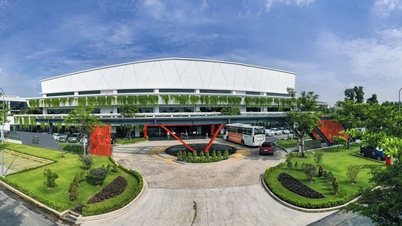

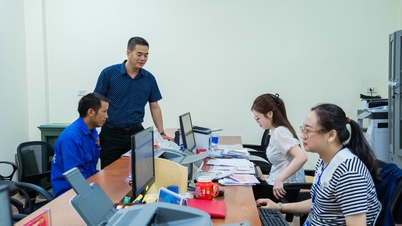









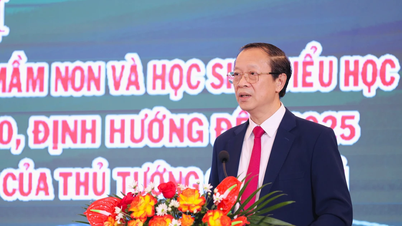






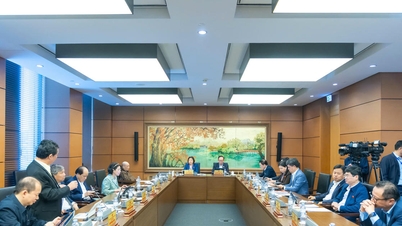
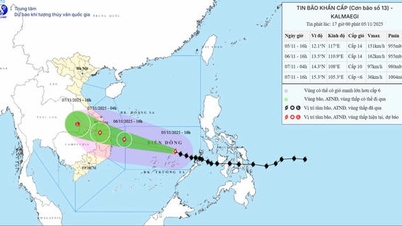
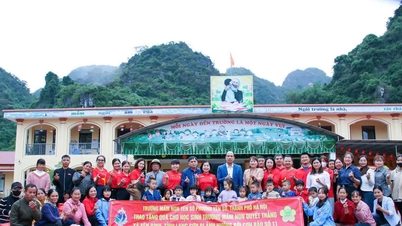
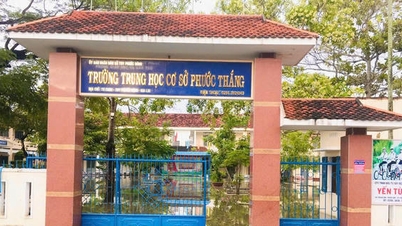



































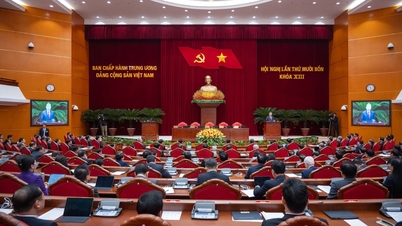




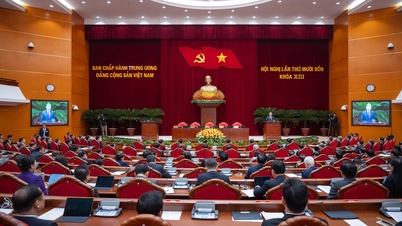

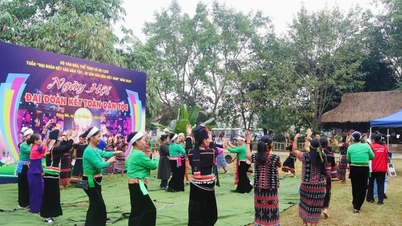


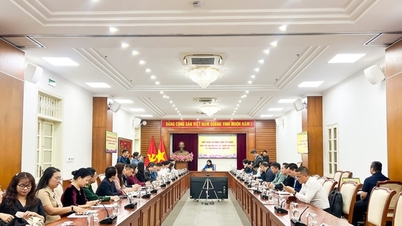



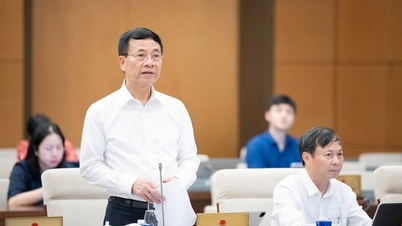





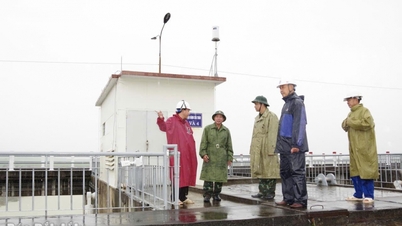

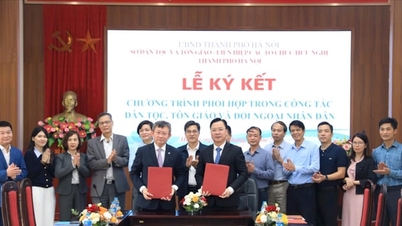

















Comment (0)